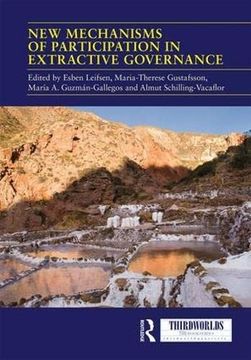Share
New Mechanisms of Participation in Extractive Governance: Between Technologies of Governance and Resistance Work (Thirdworlds)
Esben Leifsen
(Illustrated by)
·
Maria-Therese Gustafsson
(Illustrated by)
·
Maria Antonieta Guzman-Gallegos
(Illustrated by)
·
Routledge
· Hardcover
New Mechanisms of Participation in Extractive Governance: Between Technologies of Governance and Resistance Work (Thirdworlds) - Leifsen, Esben ; Gustafsson, Maria-Therese ; Guzman-Gallegos, Maria Antonieta
£ 121.50
£ 135.00
You save: £ 13.50
Choose the list to add your product or create one New List
✓ Product added successfully to the Wishlist.
Go to My WishlistsIt will be shipped from our warehouse between
Wednesday, May 22 and
Monday, May 27.
You will receive it anywhere in United Kingdom between 1 and 3 business days after shipment.
Synopsis "New Mechanisms of Participation in Extractive Governance: Between Technologies of Governance and Resistance Work (Thirdworlds)"
The scholarly debate on deliberative democracy often suggests that participatory processes will contribute to make environmental governance not only more legitimate and effective, but also lead to the empowerment of marginalized social groups. Critical studies, however, analyse how technologies of governance make use of participation to draw boundaries that separate technical knowledge from political concerns, direct the focus towards procedural aspects and contractual obligations, and reinforce hegemonic understandings of development and of local people's relationships to their environment. This book focuses on the dynamics and use of participatory mechanisms related to the rapid expansion of the extractive industries worldwide and the ways it increasingly affects sensitive natural environments populated by indigenous and other marginalized populations. Nine empirically grounded case studies analyse a range of participatory practices ranging from state-led and corporation-led processes like prior consultation and Free Prior and Informed Consent (FPIC), compensation practices, participatory planning exercises and the participation in environmental impact assessments (EIAs), to community-led consultations, community-based FPIC and EIA processes and struggles for community-based governance of natural resource uses. The book provides new insights through a combination of different theoretical strands, which help to scrutinize the limits to deliberation and empowerment on the one hand, and on the other hand to understand the political resistance potential that alternative uses of participatory mechanisms can generate. The chapters originally published as a special issue of Third World Quarterly.

